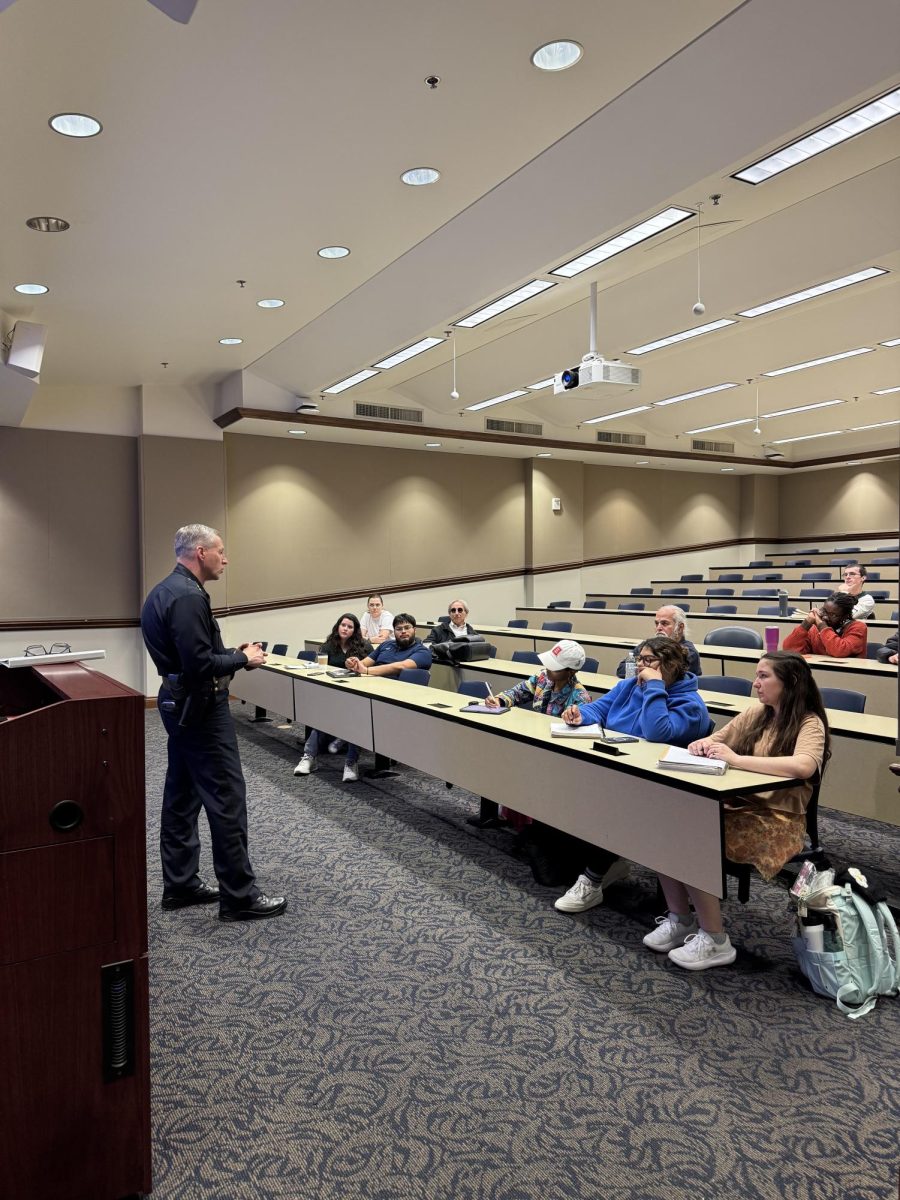Sponsored by the SMU Human Rights Program, Dallas Interim Chief of Police Micheal Igo held an informative discussion with students regarding immigration policies in Dallas on Thursday, March 6, in the Dedman Life Sciences Building.
“The Dallas Police Department does not stop people based on their ethnicity or whether or not they believe they should be illegally in this country,” Igo said. “Our sole purpose is to serve our citizens here in the city and to keep our citizens safe, whether they’re documented or undocumented, their immigration status, we do not check that.”
Igo confirms that the DPD does not participate in immigration raids, particularly around schools and churches and hospitals, or target undocumented individuals.
“It’s not the Dallas Police Department’s job,” Igo said. “I’m more concerned about what’s happening in the city of Dallas, the crime that’s happening in the city of Dallas and making sure that our residents are safe.”
As his mother was an immigrant from Germany, Igo emphasized that the U.S. is built on immigration and stressed the importance of trust between law enforcement and immigrant communities.
Igo addressed misinformation about police stops, explaining that if an officer stopped someone, they must provide identification for violence or warrant purposes, but DPD does not track or report undocumented officials to immigration authorities unless they are arrested for a criminal offense.
Many students raised questions about racial profiling and potential discrimination by officers. Igo assured attendees that the DPD has very strict policies against race-based targeting, naming body cameras as one of the many tools to review complaints.
“All our officers are equipped with body-worn cameras, ” Jesse Rodriguez, one of the multiple police sergeants who was also in attendance said. “If you feel like you’ve experienced a situation, file a complaint and we can go back and review the footage.”
Leticia Laranjeria, a junior and international student from Brazil studying psychology, attended the discussion because she has friends with undocumented parents or who are undocumented themselves.
“I was glad to see that the [DPD] has a stance against racial discrimination and profiling,” Laranjeria said. “As the Chief said, [immigrants] have constitutional rights. This country should not be about keeping people out, it should be about embracing what it has to offer.”
Although the turnout was small, students agreed that this conversation with the DPD was both important and necessary.
Faith Bombito, a senior studying political science and human rights, was also in attendance. She noted the fear many immigrants around the country feel about local police possibly enforcing federal policies.
“It’s good to know that this is not the case for Dallas, at least,” Bombito said.
Igo ended his discussion by urging students to stay informed about policing and immigration.
“Taking this step and being involved in what’s going on in our country and here locally is very important,” he said. “Being involved in what’s going on in your community is huge.”










